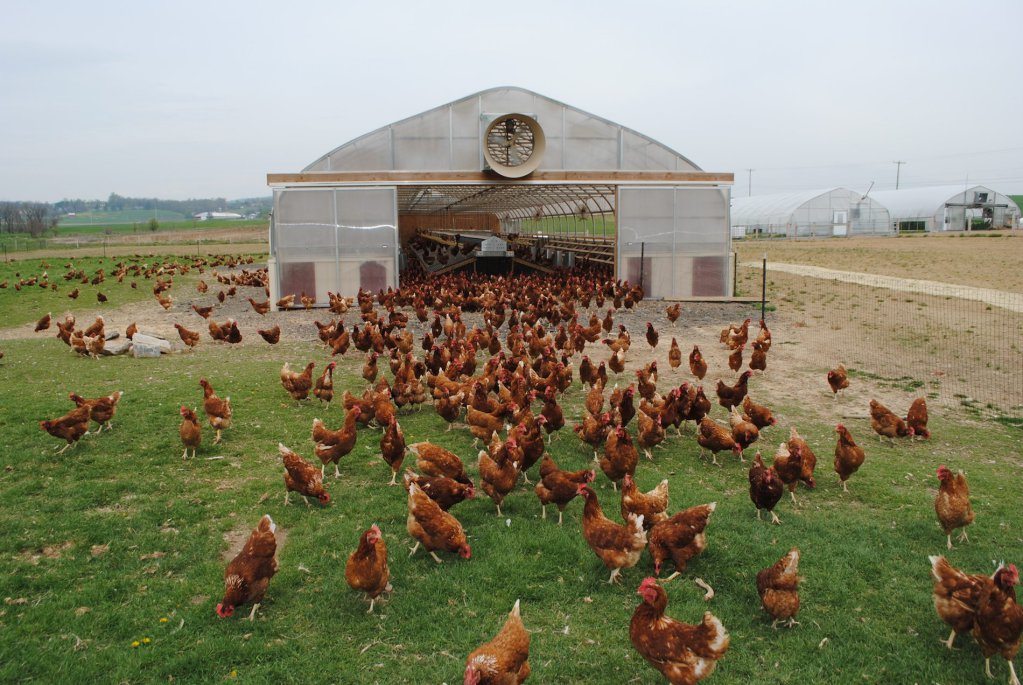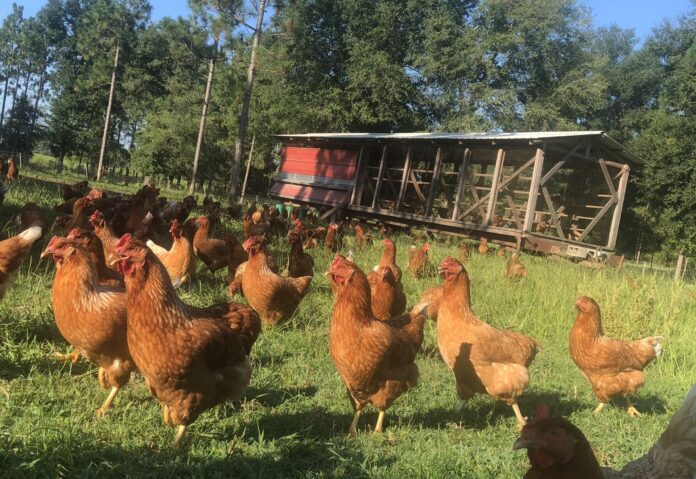Raising pasture-raised chickens in Houston presents a unique set of challenges and rewards. With the city’s humid subtropical climate, care must be tailored to ensure the health and productivity of the flock. Pasture-raised chickens, given their freedom to roam, forage, and live in a more natural environment, tend to be healthier and happier, leading to better quality eggs and meat. However, the specifics of Houston’s weather, including its hot summers, mild winters, and susceptibility to extreme weather events, require specific strategies for successful pasture-raised chicken care. Here are 10 essential tips for managing your flock in the Houston area:
1. Understand the Climate
Houston’s climate is characterized by hot summers and mild winters, with high humidity levels year-round. This environment can be stressful for chickens, especially during the peak summer months when temperatures can soar above 90°F. Chickens do not sweat and rely on panting and holding their wings away from their bodies to cool down. It’s crucial to understand these climate challenges to provide the right care for your birds.
2. Provide Ample Shade
To mitigate the effects of the hot sun, ensure your pasture has plenty of shaded areas where chickens can cool off. Trees, shrubbery, or even man-made structures like canopies or shade cloth can provide necessary relief from the heat. This not only helps in regulating their body temperature but also encourages them to forage even during the hottest parts of the day.
3. Ensure Access to Fresh Water
Hydration is key in a hot and humid environment. Chickens need constant access to clean, fresh water. In summer, water can heat up quickly, making it unpalatable, so it’s important to check and refill waterers with cool water at least twice a day. Adding ice cubes to waterers can help keep water cool longer.
4. Choose the Right Breeds
Some chicken breeds fare better in hot climates than others. Breeds like Leghorns, Rhode Island Reds, and Orpingtons are known for their heat tolerance. When planning your flock, consider these breeds for a more resilient group of birds that can thrive in Houston’s climate.
5. Implement Rotational Grazing
To prevent overgrazing and maintain healthy pastures, implement a rotational grazing system. This involves dividing your pasture into smaller areas and rotating your chickens through these areas to allow for regrowth of vegetation. This practice not only supports the health of your pasture but also reduces the buildup of parasites and diseases.
6. Monitor for Pests and Predators
Houston’s warm climate is conducive to a variety of pests, such as mites and fleas, which can affect the health of your chickens. Regularly check your birds and their living environment for signs of infestation and take appropriate measures to control pests. Additionally, protect your flock from predators like foxes, raccoons, and hawks by securing the pasture with fencing and providing sheltered areas where chickens can hide.
7. Manage Mud and Standing Water
Heavy rains can lead to muddy conditions and standing water, which can be harmful to chickens, leading to issues like foot rot and promoting the growth of harmful bacteria and parasites. Ensure proper drainage in your pasture to prevent these problems. Incorporating sand or gravel in certain areas can help improve ground conditions.

8. Provide Nutritious Feed and Supplements
While pasture-raised chickens can forage for a significant portion of their diet, supplemental feed ensures they receive all necessary nutrients. During the hot months, consider feeds that are higher in energy but lower in protein to reduce the metabolic heat produced during digestion. Also, provide supplements like oyster shell for laying hens to ensure strong eggshells.
9. Practice Good Biosecurity
Preventing disease is easier than treating it. Limit exposure to wild birds and animals, keep new birds quarantined before introducing them to your flock, and practice good hygiene when handling chickens or equipment. Regularly cleaning and disinfecting the coop and equipment can help prevent the spread of disease.
10. Stay Informed and Flexible
Weather in Houston can be unpredictable, with the potential for extreme conditions like hurricanes. Stay informed about the weather and have a plan in place for securing your chickens and their habitat in case of severe weather events. Flexibility and the ability to adapt your management practices to changing conditions are key to successfully raising pasture-raised chickens in Houston.
Raising pasture-raised chickens in Houston can be a fulfilling endeavor, offering the satisfaction of producing your own food in a sustainable and ethical way. By understanding and adapting to the unique challenges of the local climate, you can ensure a healthy, productive flock that contributes to a balanced ecosystem in your own backyard.


















